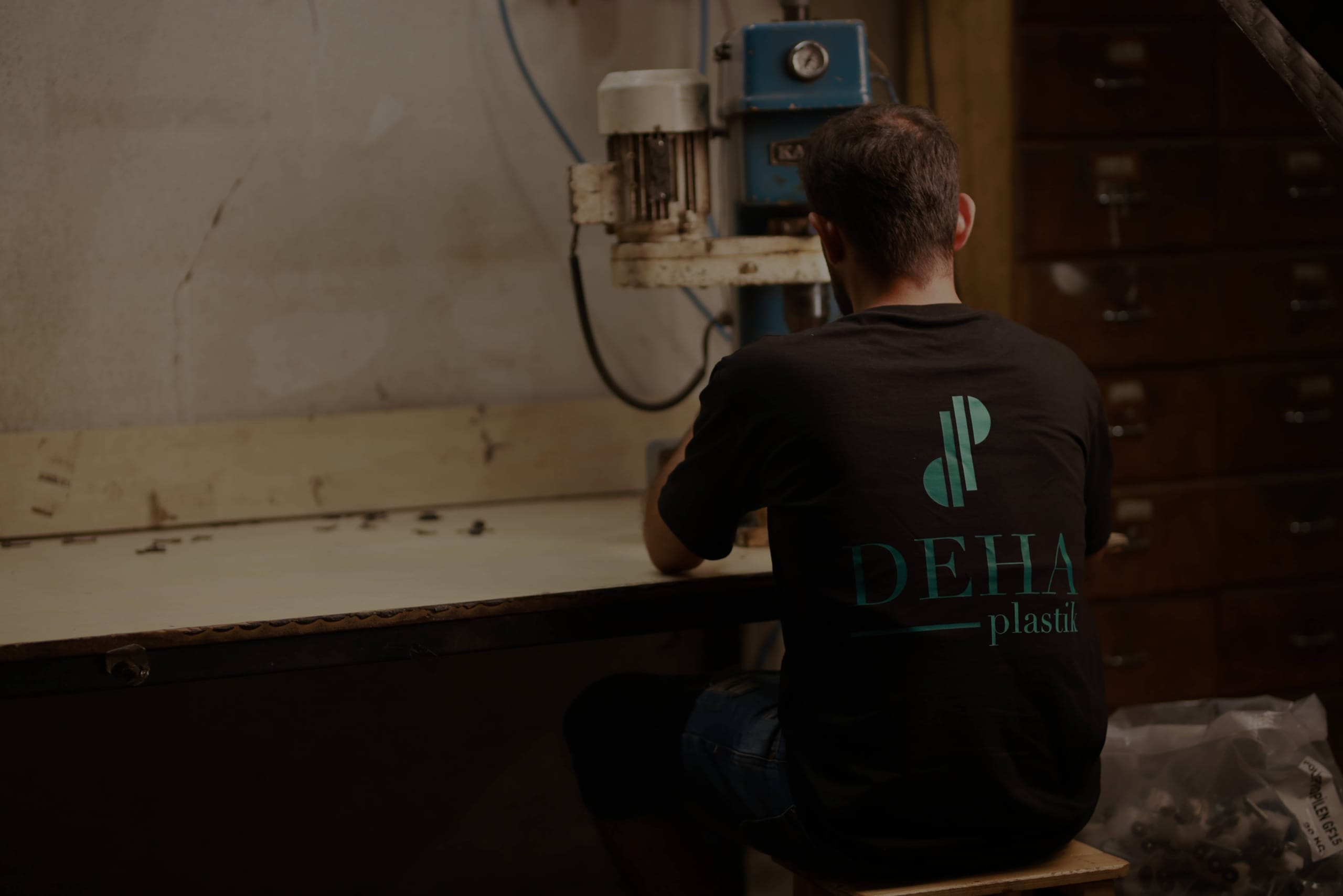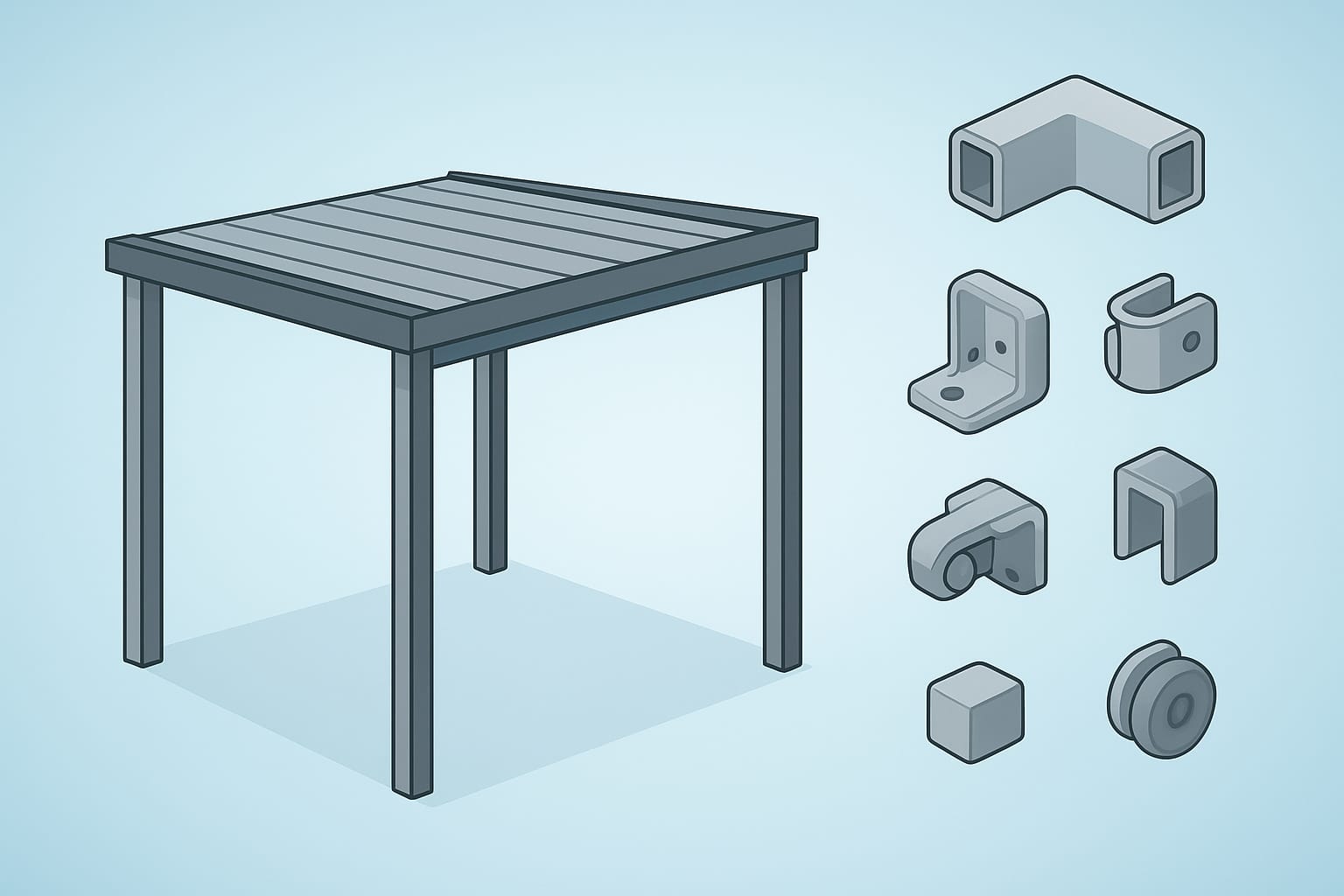
What is Plastic Injection?
Plastic injection is the process of melting granular plastic raw material and injecting it into molds under high pressure to shape it. Many connecting elements used in pergola systems are produced by this method.

Plastic Injection Components Used in Pergolas
- 1. Corner Connectors – Ensure profiles stay aligned together.
- 2. Hinge Parts – Found in movable sections of opening/closing mechanisms.
- 3. Clips and Clamps – Used for fixing roof coverings in place.
- 4. End Caps – Cover open ends of profiles, providing both aesthetics and safety.
- 5. Wheels and Rail Parts – Utilized in sliding or movable pergola systems.
Advantages of Plastic Injection Components
- Precision Manufacturing: Produces highly accurate and compatible parts.
- High Durability: Resistant to impacts and UV radiation.
- Cost-Effective Solution: Reduces costs by using plastic instead of metal parts.
- Lightweight: Decreases the overall weight of the pergola, making installation easier.
Material Options
- ABS Plastic: High impact resistance, suitable for outdoor use.
- Polypropylene (PP): Flexible with strong UV and moisture resistance.
- Polycarbonate (PC): Transparent and durable, preferred in certain special parts.
Production Process
- 1. Mold design is prepared.
- 2. Plastic granules are melted.
- 3. Injected into the mold with pressure using an injection machine.
- 4. Cooled and removed from the mold.
- 5. Inspected and packaged.
Conclusion
Plastic injection components are critical elements that directly affect both the durability and aesthetics of pergola systems.